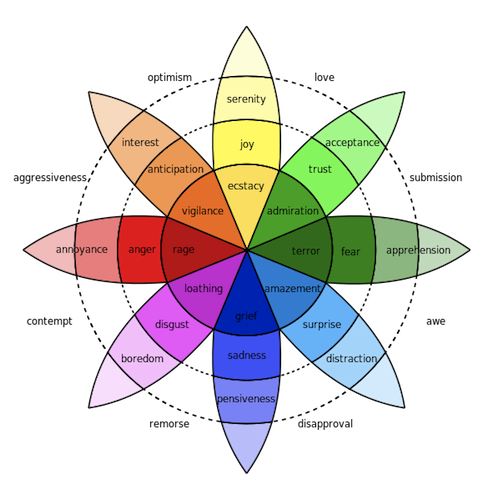We’ve established that fear is the wrong emotion in healthcare marketing. But with 31 other emotions to choose from, how do we know which is the right one to target?

Of all the emotions available to us in Robert Plutchik’s popular wheel of emotions, the good news is that there’s one that matters more than any of the others: Trust.
Consider this. Patients who trust their doctor are more likely to
- Take their prescribed medication (by 4x!)1
- Engage in recommended behaviors such as exercise and safe sex2
- Enroll in a new cancer study treatment3
And when there’s a lack of trust, patients are 8x more likely to leave a provider.4
Because we’ve all experienced trust or distrust in our own health experiences (and the related implications), this comes as no great surprise. But, why is it then that healthcare organizations focus so much on measuring satisfaction over trust?
“Satisfaction looks backward, based on past experience, while trust looks forward, an expectation of future behavior…[Trust] has a strong emotional component not present in satisfaction…when trust and satisfaction were placed in the same multivariate model, only trust remained independently associated with [adherence and continuity of enrollment].”5
So how does one go about building trust in healthcare marketing?
The digitally driven hospitals of the future are taking a cue from their B2C counterparts. Rather than think in terms of websites, SEO, and advertising, they’re building bonds with patients across the entire customer experience - from initial research, to appointment scheduling, the hospital visit, post-care follow up, and daily health routines that proactively keep patients out of the hospital.
By building innovative and “addictive” apps, healthcare organizations are redefining the patient experience by being there all the time, instead of only when people are sick. In return, they’re creating long-lasting trust that leads to greater customer satisfaction and loyalty.
To read more and get 4 real examples of how healthcare organizations are engaging with patients in entirely new ways, download our whitepaper, Addictive Health: The Patient Journey Reimagined.
--------
White Rhino is a digital marketing agency specializing in building trust between hospitals and patients. Our B2MeSM research process uncovers psychological motivators and customized Trust LeversSM that become the strategic driver for hospital website redesign and the execution of high impact marketing programs. To learn more, please contact us.
1 Thom et al., “Validation of a Measure of Patients’ Trust.”
2 D.G. Safran et al., “Linking Primary Care Performance to Outcomes of Care,” Journal of Family Practice 47, no. 3 (1998): 213–220. Medline
3 D.T. Penman et al., “Informed Consent for Investigational Chemotherapy: Patients’ and Physicians’ Perceptions,” Journal of Clinical Oncology 2, no. 7 (1984): 849–855. Abstract
4 Thom et al., “Validation of a Measure of Patients’ Trust.”
5 Health Affairs, July 2014, Measuring Patients’ Trust In Physicians When Assessing Quality Of Care, by David H. Thom, Mark A. Hall and L. Gregory Pawlson



